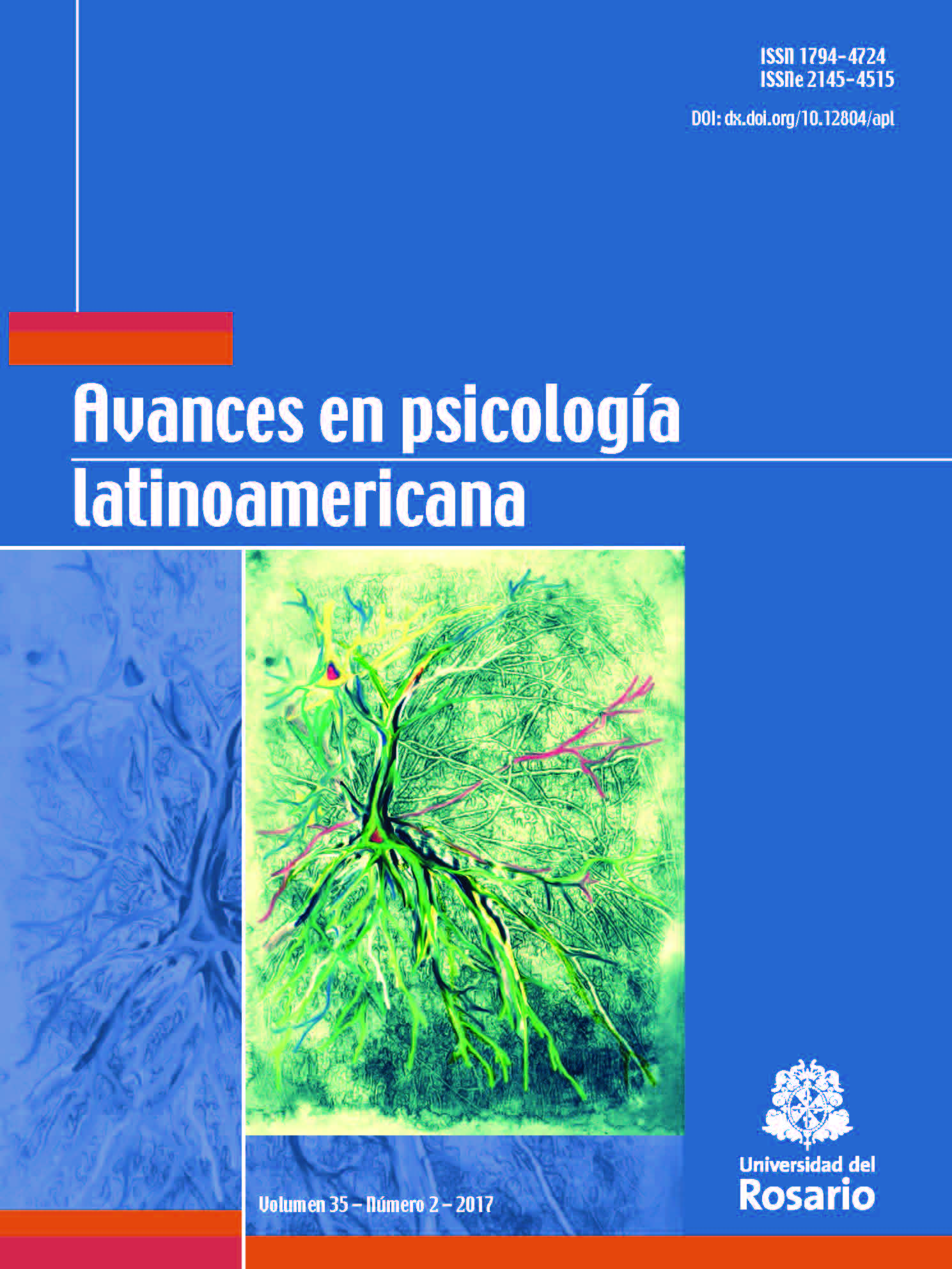Repensando la esquizofrenia a la luz de nuevas evidencias: treinta años después del estudio longitudinal de Vermont de personas con enfermedad mental grave
Barra lateral del artículo
Contenido principal del artículo
Despite new evidence, procedures, client testimony, and movements around the world, old myths regarding schizophrenia still prevail among both the public and mental health professionals. Thirty years have passed since the mind-blowing publication in 1987 of the Vermont Longitudinal Study of Persons with Severe Mental Illness (Harding, Brooks, Ashikaga, Straus, & Breier), which led to Harding and Zahniser’s 1994 article, Empirical Correction of Seven Myths about Schizophrenia with Implications for Treatment. We need to systematically review what we know and what we do not know in the light of new evidence. We need to find ways to communicate the knowledge derived from academic research on schizophrenia and psychosis to professionals working with this population, and to people with schizophrenia and their families. Thus can we begin to break down the rock-solid prejudices that have been rooted in humanity for centuries.
Descargas
Alberto Fergusson, Universidad del Rosario
Universidad del Rosario, Director of the Center for Psychosocial Studies (cepso/cepss), School of Medicine and Health Sciences. Vice-president of the World Association for Psychosocial Rehabilitation (wapr). E-mail: afergusson@selfrehabilitation.org
Miguel Gutierrez-Pelaez, Universidad del Rosario
Universidad del Rosario, Director of the Psychology Program, School of Medicine and Health Sciences. People, Family, and Society Research Group, Bogotá, Colombia. E-mail: miguel.gutierrez@urosario.edu.co
Ascher-Svanum, H., Russo, P., Shumway, M. & Harding, C. (2003). The schizophrenia care and assessment program (SCAP): A large longitudinal observational study of schizophrenia in the US. Biological Psychiatry, 53(8), 99S-99S.
Basaglia, F. (1979) Brazilian Conference. Milan: Raffaello Cortina, 2000.
Basaglia, F., Scheper-Hughes, N., Lovell, A.M. & Shtob, T. (1987) Psychiatry Inside Out: Selected Writings of Franco Basaglia. New York: Columbia University Press.
Basaglia, F. & Basaglia Ongaro, F. (1975). Crimini di Pace: Ricerche sugli Intellettuali e sui Tecnici come Addetti all’Oppressione. Torino: G. Einaudi.
Basaglia, F. & Basaglia Ongaro, F. (1981) Scritti (2 vols.) Torino: Einaudi.
Basaglia, F. & Basaglia Ongaro, F. (2005) L’Utopia della Realta`. Torino: Giulio Einaudi.
Beers, C. W. (1921). A Mind That Found Itself. Pittsburg, USA: University of Pittsburgh Press.
Castelein, S., Bruggeman, R., van Busschbach, J. T., van der Gaag, M., Stant, A. D., Knegtering, H. & Wiersma, D. (2008). The effectiveness of peer support groups in psychosis: a randomized controlled trial. Acta psychiatrica Scandinavica, 118(1), 64-72.
Coccoz, V. (comp.) (2014). La práctica lacaniana en instituciones I. Buenos Aires: Argentina: Grama.
Cohen, A., Patel, V., Thara, R., Gureje, O. (2008). Questioning an axiom: better prognosis for schizophrenia in the developing world? Schizophrenia Bulletin 34(2), 229–44.
Cooper, D. (1967). Psychiatry and Anti-Psychiatry. London: Tavistock Publications.
Cooper, D. (1968). Beyond words. In: Cooper D (Ed.). The Dialectics of Liberation. Harmondsworth, UK: Penguin Books, 193-202.
Cooper, D. (1971). The Death of the Family. London: Allen Lane.
DeSisto, M., Harding, C.M., McCormick, R.V., Ashikaga, T., & Brooks, G.W. (1995). "The Maine and Vermont Three-Decade Studies of Serious Mental Illness. I. Matched Comparison of Cross-Sectional Outcome, and II. Longitudinal Course Comparisons.” British Journal of Psychiatry, 167, 338-342.
Diaz, E., Fergusson, A. & Strauss, J. (2004). Innovative Care for the Homeless Mentally Ill In Colombia. In: Jenkins JH, Barret RJ, eds. Schizophrenia, Culture and Subjectivity. The Edge of Experience. Cambridge: Cambridge University Press.
Fergusson, A. (2014). Accompanied Self-Rehabilitation. Bogotá, Colombia: Universidad del Rosario.
Freud, S. (1911). Psycho-Analytic Notes On An Autobiographical Account Of A Case Of Paranoia (Dementia Paranoides) (Ed. Y Trad.) The standard edition of the complete psychological works of Sigmund Freud. (Vol. XII (1911-1913): The Case of Schreber, Papers on Technique and Other Works, 1961, pp. 341). London: Hogarth Press.
Gutiérrez-Peláez, M. (2014). El psicoanálisis de orientación lacaniana en el tratamiento del autismo, Affectio Societatis, 11(21), 1-8.
Gutiérrez-Peláez, M. & Villamil-Díaz, J. (2015). La psicoterapia de orientación psicodinámica en el tratamiento integral de pacientes con esquizofrenia y sus familias. Clínica Contemporánea, 6(2): 69-83. DOI: http://dx.doi.org/10.5093/cc2015a7
Gutiérrez-Peláez, M. (2017). Retos para las intervenciones psicológicas y psicosociales en Colombia en el marco de la implementación de los acuerdos de paz entre el gobierno y las FARC-EP. Avances en Psicología Latinoamericana, 35(1), 1-8.
Grandin, T. (2006). Thinking In Pictures. My Life with Autism. New York, USA: Vintage Press.
Gutiérrez, R. (2013). Alberto Fergusson. Instituto de Auto-rehabilitación Acompañada. Colombianos que cambian el mundo. Planeta: Bogotá.
Harding, C.M., Brooks, G.W., Ashikaga, T., Strauss, J.S., & Brier, A. (1987). The Vermont Longitudinal Study of Persons with Severe Mental Illness, I: Methodology, Study Sample, and Overall Status 32 Years Later. American Journal of Psychiatry, 144(6), 718-726.
Harding, C.M. & Zahniser, J.H. (1994). Empirical Correction of Seven Myths about Schizophrenia with Implications for Treatment. Acta Psychiatrica Scandinavica, 90 (Suppl. 384), 140-146.
Harding, C.M. (2014). Foreword. In Accompanied Self-Rehabilitation. Fergusson, A. (author). Bogotá, Colombia: Universidad del Rosario.
Higashida, N. (2013). The Reason I Jump. The Inner Voice of a Thirteen-Year-Old Boy with Autism. New York: Random House.
Isaac, M., Chand, P., Murthy, P. (2007). Schizophrenia outcome measures in the wider international community. The British Journal of Psychiatry 191(50), s71–s77.
Jääskeläinen, E., Juola, P., Hirvonen, N., McGrath, J.J., Saha, S., Isohanni, M., Veijola J., Miettunen, J. A. (2013). A systematic review and meta-analysis of recovery in schizophrenia. Schizophrenia Bulletin, 39, 1296-306.
Jones, M. (1952). Social Psychiatry: A Study of Therapeutic Communities. London: Tavistock Publications.
Jones, M. (1962). Social Psychiatry in the Community, in Hospitals, and in Prisons. Springfield, IL: Charles C. Thomas.
Jones, M. (1968). Beyond the Therapeutic Community: Social Learning and Social Psychiatry. New Haven, CT: Yale University Press.
Jones, M. (1976). Why open systems? A personal account. In The Changing Mental Health Scene (ed. R. Hirschowitz & B. Levy). New York: Spectrum Publications.
Jones, M. (1979a). Therapeutic communities, old and new. American Journal of Drug and Alcohol Abuse, 6, 137–149.
Jones, M. (1979b). The therapeutic community, social learning and social change. In Therapeutic Communities, Reflections and Progress (ed. R.D. Hinshelwood & N. Manning). London: Routledge & Kegan Paul.
Jones, M. (1980). Desirable features of a therapeutic community in prison. In Therapeutic Communities in Corrections (ed. H. Toch). New York: Praeger.
Jones, M. (1982). The Process of Change. Boston, MA: Routlegde & Kegan Paul.
Jones, M. (1984). Why two therapeutic communities? Journal of Psychoactive Drugs, 16, 23–26.
Laing, R. D. (I960). The Divided Self: An Existential Study in Sanity and Madness. London: Tavistock.
Laing, R. D. (1967). The Politics of Experience and the Bird of Paradise. Harmondsworth, UK: Penguin.
Laing, R. D. (1976). The Facts of Life: An essay in feelings, facts, and fantasy. New York: Pantheon.
Laing, R. D. (1985). Wisdom, Madness and Folly: The making of a psychiatrist. New York: McGraw-Hill.
Laing, R. D. & Esterson, A. (1964). Sanity, Madness, and the Family: Vol. I. Families of schizophrenics. London: Tavistock.
Laursen, T.M., Nordentoft, M., Mortensen, P.B. (2014). Excess early mortality in schizophrenia. Annual Review of Clinical Psychology, 10, 425-48.
Letovancová, K., Kovalčíková, N. & Dobríková, P. (2017). Attitude of Society towards People with Mental Illness: The Result of National Survey of the Slovak Population. International Journal of Social Psychiatry, 1– 6, Doi: 10.1177/0020764017696334
Lieberman, J.A., Drake, R.E., Sederer, L.I., Belger A., Keefe, R., Perkins, D., Stroup, S. (2008). Science and Recovery in Schizophrenia. Psychiatric Services, 59, 487-96.
Lombroso, C. (2009). Arte, genio y locura. Minerva: Revista del Círculo de Bellas Artes, 11. 80-83.
Magliano, L., Strino, A., Punzo, R., Acone, R., Affuso, G. & Read, J. (2017). Effects of the Diagnostic Label ‘Schizophrenia’, Actively Used or Passively Accepted, on General Practitioners’ Views of this Disorder. International Journal of Social Psychiatry,1–11. Doi: 10.1177/0020764017695353
Maleval, J.-C. (2011). El autista y su voz, Madrid. España: Gredos.
Maleval, J. C. (2012). ¡Escuchen a los autistas!. Grama: Madrid.
Morgenthaler, W. (1992). Madness and Art, the Life and Works of Adolf Wölfli. London: University of Nebraska Press. (Original work published in 1921).
Prinzhorn, H. (1972). Artistry of the Mentally Ill: A Contribution to the Psychology and Psychopathology of Configuration (2ª ed.). New York: Springer- Verlag. (Original work published in 1922).
Seikkula, J. & Arnkil, E. (2014). Open Dialogues and Anticipations. Respecting Otherness in the Present Moment. Finland: Teema.
Sekar, A., Bialas, A. R., Rivera, H., Davis, A., Hammond, T. R., Kamitaki, N., Tooley, K., Presumey, J., Baum, M., Van Doren, V., Genovese, G., Rose, S. A., Handsaker, R. E., Daly, M. J., Carroll, M. C., Stevens, B., McCarroll, S. A. (2016). Schizophrenia risk from complex variation of complement component 4. Nature, 530, 177-183. DOI: 10.1038/nature16549
Sellin, B. (1994). Quiero dejar de ser un dentrodemi. Mensajes desde una cárcel autista. Barcelona, España: Galaxia Gutemberg/Círculo de lectores.
Schreber, D. P. (1955). Memoirs of My Nervous Illness. New York, USA: New York Review of Books.
Slobodin, O. & De Jong, J. T. (2015). Mental Health Interventions For Traumatized Asylum Seekers And Refugees: What Do We Know About Their Efficacy? International Journal of Social Psychiatry 61(1), 17–26.
Szasz, T. S. (1976). Schizophrenia: The Sacred Symbol of Psychiatry. Syracuse, NY: Syracuse University Press: 1988.
Szasz, T. S. (1977). Psychiatric Slavery: When Confinement and Coercion Masquerade as Cure. Syracuse, NY: Syracuse University Press, 1998.
Szasz, T. S. (1982). The Psychiatric Will: A new mechanism for protecting persons against "psychosis" and psychiatry. American Psychology, 37, 762-770.
Szasz, T. S. (2001). Pharmacracy: Medicine and Politics in America. Syracuse, NY: Syracuse University Press, 2003.
Szasz, T. S. (2002). Liberation by Oppression: A Comparative Study of Slavery and Psychiatry. New Brunswick, NJ: Transaction.
Szasz, T. S. (2011). The Myth of Mental Illness: Foundations of a Theory of Personal Conduct. New York, USA, Harper Collins.
Tammet, D. (2006), Nacido en un día azul. Un viaje por el interior de la mente y la vida de un genio autista, Barcelona, España: Sirio.
Verhaeghe, M., Bracke, P. & Bruynooghe, K. (2008). Stigmatization and Self-Esteem of Persons in Recovery from Mental Illness: The Role of Peer Support. International Journal of Social Psychiatry, 54(3): 206–218. Doi: 10.1177/0020764008090422
Williams, D. (1994). Somebody Somewhere. Breaking Free From the World of Autism. New York, USA: Tree Rivers Press.
Williams, D. (1999). Nobody Nowhere. The Remarkable Autobiography of an Autistic Girl. London, England: Jessica Kingsley Publishers.
Detalles del artículo
Los autores conservan los derechos de autor y garantizan a la revista el derecho de ser la primera publicación del trabajo al igual que licenciado bajo una Creative Commons Attribution License que permite a otros compartir el trabajo con un reconocimiento de la autoría del trabajo y la publicación inicial en esta revista.
Artículos más leídos del mismo autor/a
- Miguel Gutiérrez-Peláez, Retos para las intervenciones psicológicas y psicosociales en Colombia en el marco de la implementación de los acuerdos de paz entre el gobierno y las FARC-EP , Avances en Psicología Latinoamericana : Vol. 35 Núm. 1 (2017)
- Miguel Gutiérrez-Peláez, Luisa Fernanda Ramírez, Avances en Psicología Latinoamericana (APL) 2015-2020: estado del arte, hitos, logros y perspectivas , Avances en Psicología Latinoamericana : Vol. 38 Núm. 3 (2020): Avances en Psicología Latinoamericana
- Miguel Gutierrez-Peláez, Luisa Fernanda Ramírez, Editorial: un nuevo periodo en la revista Avances en Psicología Latinoamericana (2016-2020) , Avances en Psicología Latinoamericana : Vol. 34 Núm. 1 (2016)
- Miguel Gutierrez-Peláez, Un arte con machete. Comentario sobre la obra de Alonso Jiménez , Avances en Psicología Latinoamericana : Vol. 34 Núm. 1 (2016)
- Miguel Gutiérrez-Peláez, Luisa Ramírez, Elevando la barra en los estándares de ética y transparencia en las publicaciones científicas , Avances en Psicología Latinoamericana : Vol. 34 Núm. 2 (2016)
- Miguel Gutierrez-Pelaez, El arte como fortín. Lo que la guerra no podrá erosionar , Avances en Psicología Latinoamericana : Vol. 36 Núm. 1 (2018)
- Miguel Gutiérrez-Peláez, Luisa Ramírez, Andrés M. Pérez-Acosta, Psicología y arte: a propósito de la Galería Latinoamericana de Arte en Portada (2004-2020) , Avances en Psicología Latinoamericana : Vol. 38 Núm. 1 (2020): Avances en Psicología Latinoamericana
- Luisa Ramírez, Miguel Gutiérrez-Peláez, Andrés M. Pérez-Acosta, El movimiento de acceso abierto a la ciencia: referentes globales, regionales y locales , Avances en Psicología Latinoamericana : Vol. 37 Núm. 1 (2019): Avances en Psicología Latinoamericana




